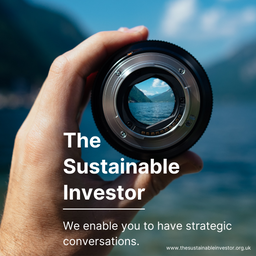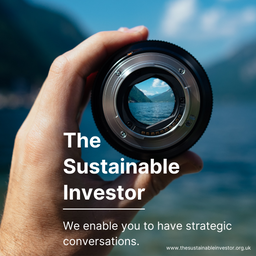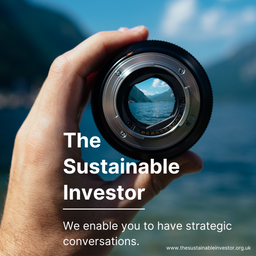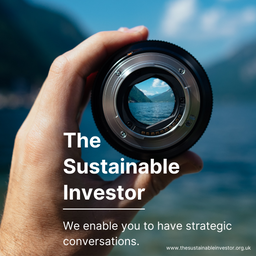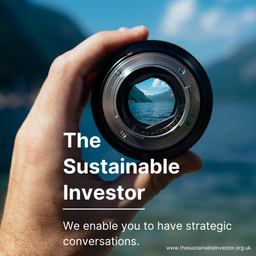
Sunday Brunch: being a win/win doesn't guarantee it happens
Some phrases mean different things to different people. Win/win is one of those. Even if an action can be shown to be a win for both a company and society, there are good reasons why management might still NOT act. We need to be clear about how the win will play out when we plan engagements.
There is often an implicit assumption that an action that is a win/win for both the company and society needs no engagement or prompting from shareholders. After all if it's a win for the company, they will action it anyway. But my experience has been that this is often not the case. Even when a sustainability action can potentially provide a long term financial gain for a company, they still do nothing.
To many investors this lack of progress on apparent win/win actions makes no sense ...how can an action that is a win for the company not be implemented?
Part of the clue is in the phrase 'long term financial gain'. If the gain is many years out in the future, it is sometimes not treated as a priority, especially if the company is facing material short term risks. This can also happen when the company feels that investors are not really concerned about an issue, after all 'it's not a topic we have been asked about before'. Fixing this requires work (engagement) with both the company and their (current and possible future) shareholders
And then we have inertia. If an action requires the company to 'do things differently' corporate inertia can stop change from happening. We should never underestimate the power of corporate culture, for good and bad. This is a very difficult barrier for investors to overcome. Companies only very frequently go against their culture, and normally under some form of duress.
And then there is the important question of how the win comes about. Many people think about a financial win in terms of 'a company invests X now, and gets more than X back in the future'. A simple and much used example is the shift to LED lighting. This involves an upfront cost (investment) in new LED fittings and bulbs, which delivers a mid term financial gain from lower energy bills.

Industrial companies can achieve similar benefits (wins) from shifting to more energy efficient plant or in the case of an airline, purchasing more modern (lower fuel consumption) engines. These are clear financial wins for companies.
But not all wins look like this.
Let's dig a bit into the various barriers to delivering win/win outcomes.
Failure to focus on the long term
We have talked before about the requirement for companies to invest for the future. Markets change, and companies should always be looking to be ahead of the curve. Companies that fail to prepare for these changes are nearly always worth less than those that adapt. This is also true for sustainability related changes.
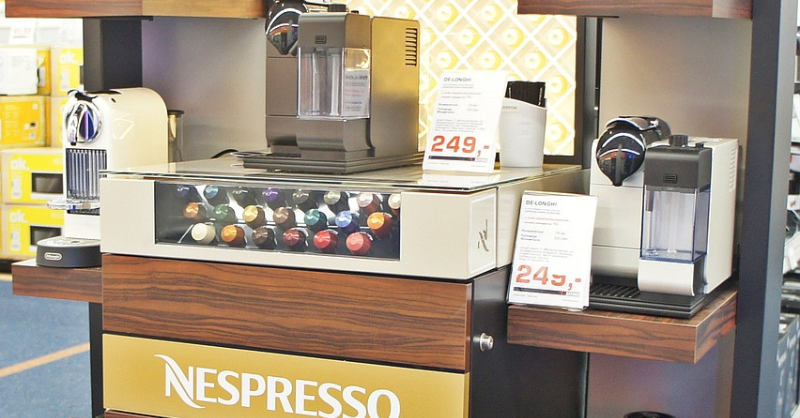
The importance of corporate culture
And we have also written about how important corporate culture is. The most dramatic examples are those where the culture leads a company to make poor decisions, which they then often attempt to cover up.
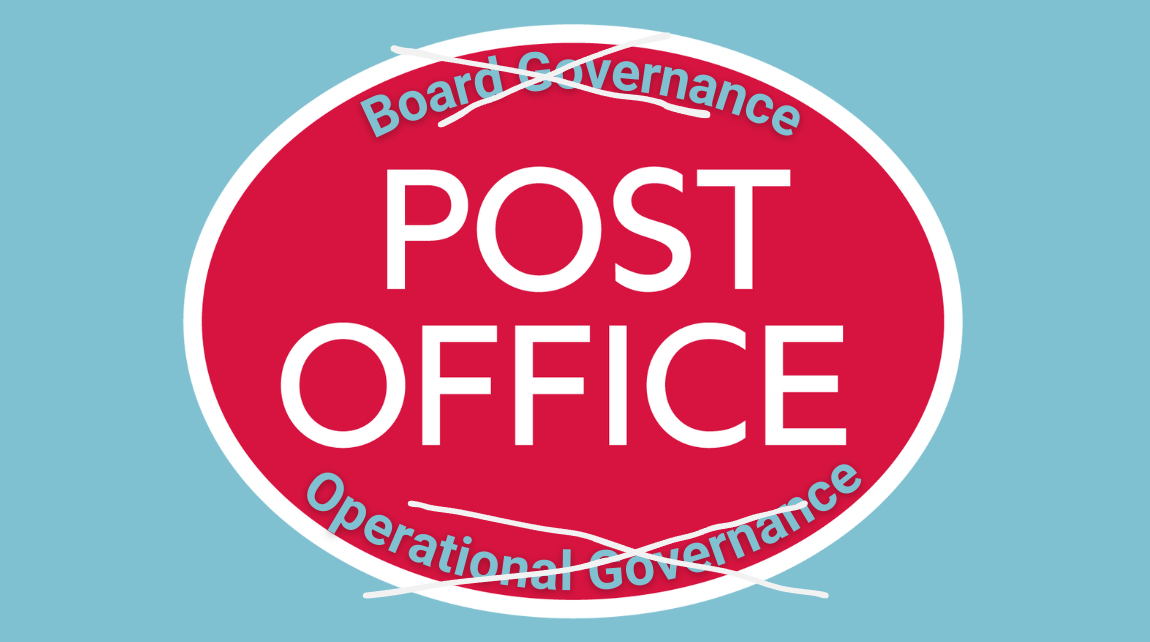
But a 'blocking' corporate culture can also result in companies believing that external change is not happening. So they carry on doing the same things as in previous years, until events catch up with them and change is imposed on them (via takeovers or possibly bankruptcy). We can all think of examples of this - Nokia, Blockbuster Video and Kodak. For instance, in a sustainability related context this is a possible risk for traditional automotive OEM's.
Building resilience is also a financial win
Preparing for the future (either adaptation or transition change) can also involve actions and investments that improve resilience. This type of action is harder to analyse and 'prove' than the simple LED lighting type examples, but such actions can turn out to be critical to how a firm prospers in the longer term.
One clear example is supply chain security. If a company cannot access the raw materials it needs, or if they have to pay more than their competitors, they will likely lose market share, and end up suffering a financial loss. Investing to protect supply chain security is a good example of a less than obvious win - even when we might not be able to point to a simple positive financial IRR (internal rate of return) from the investment.
Many years ago I was involved in analysing companies involved in the production and marketing of champagne (yes, it was a tough job but someone had to do it). In some ways this is a potentially challenging industry. All of the producers start with pretty much the same raw material - grapes grown in a very tightly proscribed area of France. And from this they make a product that has massive brand loyalty and that sells at a premium price.
Given this you will not be surprised to learn that the major champagne houses (Krug, Pol Roger, Dom Pérignon, Veuve Clicquot) all invest in improving the production of the required grapes. This makes financial sense.
But, you may be surprised to learn that this investment extends beyond the grapes that they grow themselves, also extending to the grapes grown by the independent growers in their supply chain. This also makes financial sense.
At the heart of this 'working together' are the co-operatives, representing the thousands of independent growers. There are more than 130 co-operatives, with over 14,000 grower members. Together they cultivate c. 40% of the champagne AOC. Many co-operatives sell their own champagne, as well as supplying the global brand owners. They are competitors as well as suppliers to the big champagne houses.

The common interest goes beyond protecting and enhancing the champagne brand. A distinguishing feature of the Champagne terroir is that the vines are planted at the northernmost limits of their cold tolerance. In other words they are planted on the climatic edge. And we know that in common with many agricultural products, grape growers across the world face material climate change risk, in terms of temperature changes, water shortages and climate volatility.
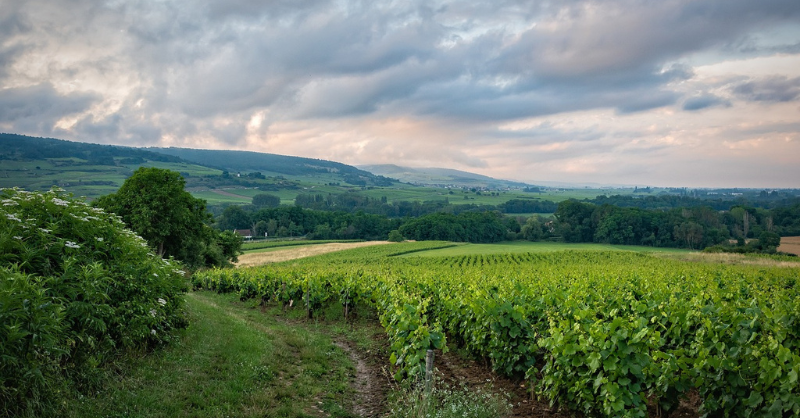
This common interest can be very powerful in driving change, but it also can create material barriers. For some industries, such as champagne and cognac, it's widely accepted. But for others, especially those where the relationship between the supplier and the producer is short term and very transactionally based. Breaking down these barriers may require work by investors, not just engaging with the companies, but also with supplier representatives.
Coffee is a good example of where this doesn't work at the scale we need, despite the strong common interest in providing supply chain resilience.

The bottom line is that there can be multiple reasons, often very company or industry specific, as to why win/win actions are not happening. Investors, including asset owners, need to make sure their engagement is both targeted, and focused on breaking down the barriers.
Just a reminder, this is not investment advice. Regular readers will know that the debate about if a company makes a good investment is largely about the price you have to pay for the shares. And how this compares with your estimate of fair value. A company can be poorly placed in its industry, and still be 'cheap'.
One last thought
Grapes and coffee are not the only agricultural products where working together can produce positive financial outcomes for companies, their suppliers, and the wider society. Banana's are another good example - we eat a lot of banana's. In 2024 the EU nations consumed just short of 6m tonnes of banana's. And the average American eats nearly 27 lbs each pa. And they are a key food staple in many parts of the world.

Grant me the strength to accept the things I cannot change, the courage to change the things I can, and the wisdom to know the difference. Reinhold Niebuhr - a Lutheran theologian in the early 1930's
Please read: important legal stuff. Note - this is not investment advice.

